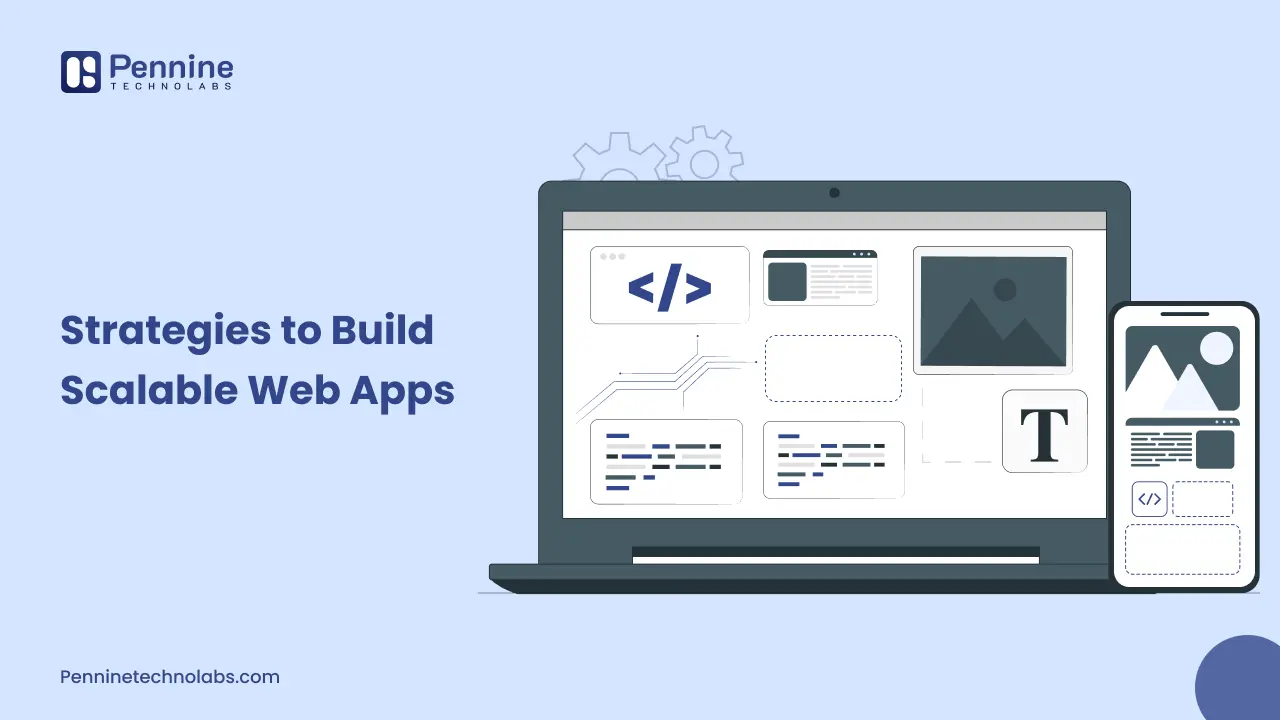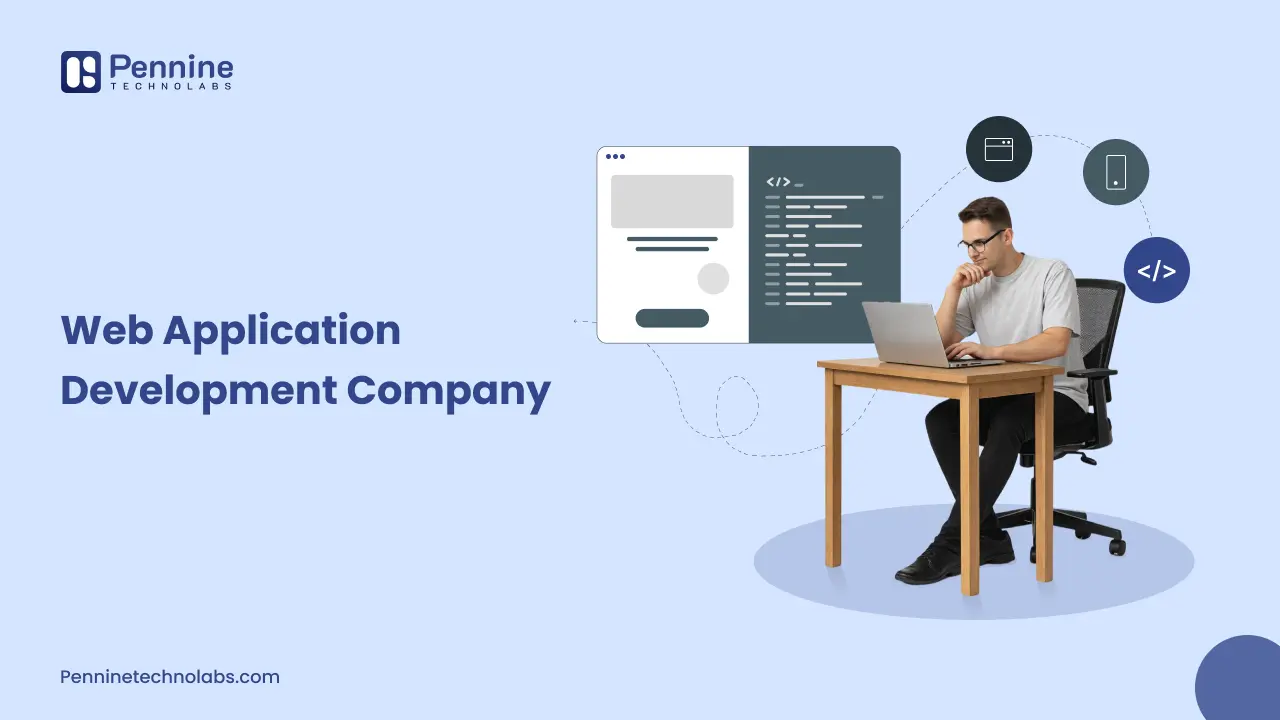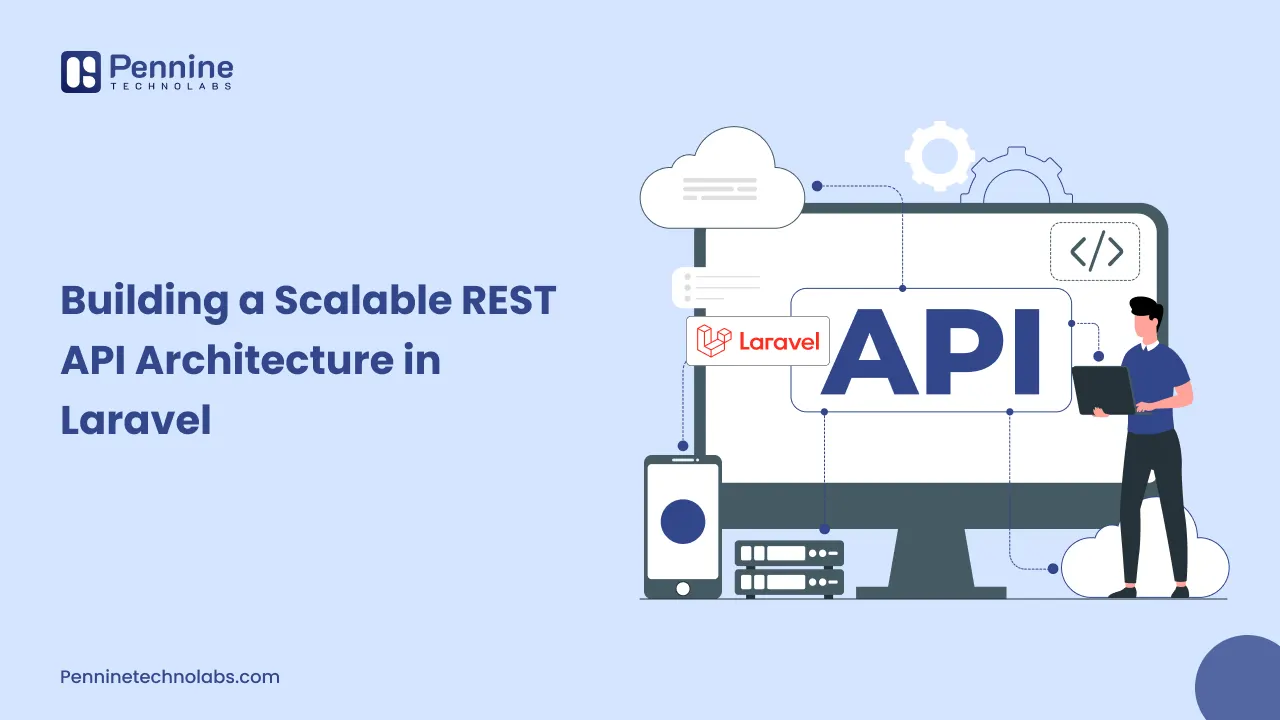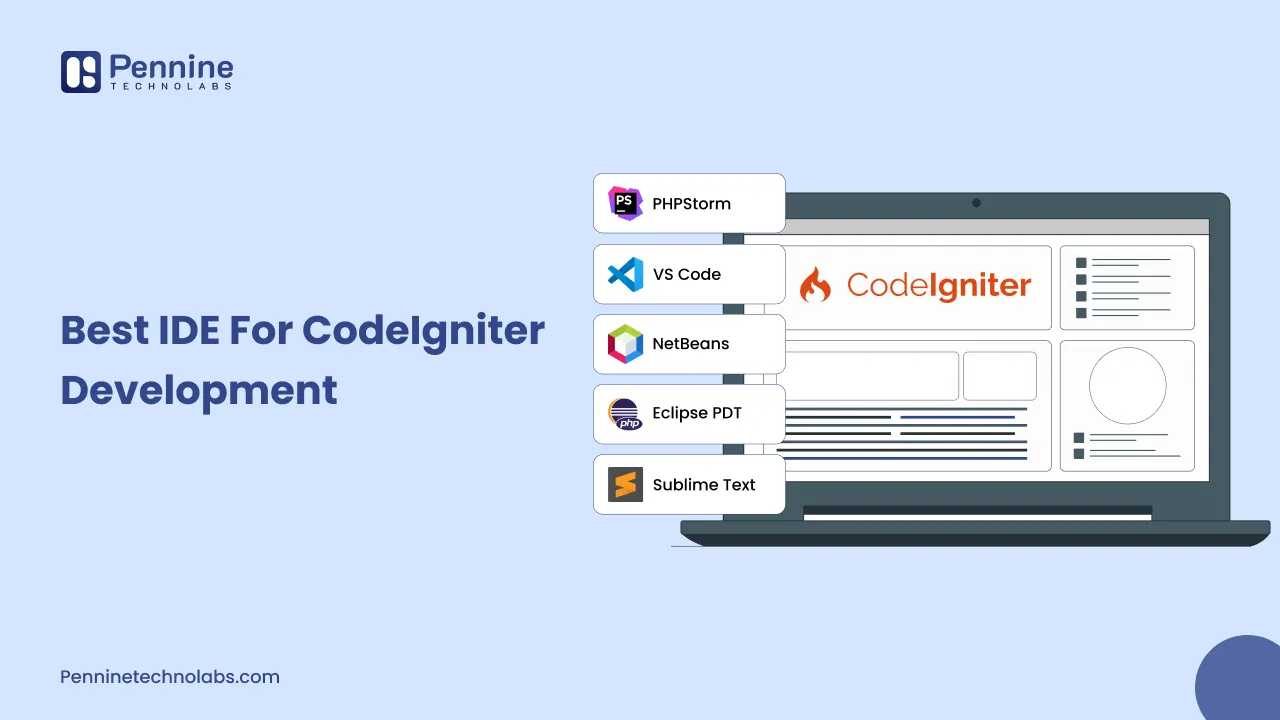Quick Summary: Scalability ensures that web applications perform as the business grows. We offer proven strategies to cover scalable web application development, architecture, database, frontend optimization, cloud practice, and DevOps. Learn how to avoid normal mistakes, embrace future trends, and create apps prepared for the future with Pennine Technolabs.
Let’s be honest. Nobody makes the app thinking that “I hope it crashes the moment that people start using it.” But this is the same when the scalability is not part of the scheme.
Businesses cannot afford slow or unreliable applications in the fast-paced, moving market. Users expect spontaneous experiences, whether they are hundreds or one million. This makes scalability one of the most important factors in modern web application development. A scalable app grows with your business, increases traffic smoothly, and the cost remains efficient.
A smart web app development comes when a scalable app grows with your business without losing speed, security, or purity. Pennine Technolabs is an experienced web app development company in the USA that creates long-term business solutions. Our strategies to build the next web app grow with your business.
How to scale a Web Application?
Web Application scalability is more than handling traffic. It is also about providing flawless service for your business operations. For example, an ecommerce store may begin with a few hundred visitors per day, but thousands will be required during peak season. A social platform or SaaS product should serve global users in real time. Without scalability, development often results in downtime, customer dissatisfaction, and high costs.
Long-term planning supports scalable web app development across all levels of design, and purpose is essential.
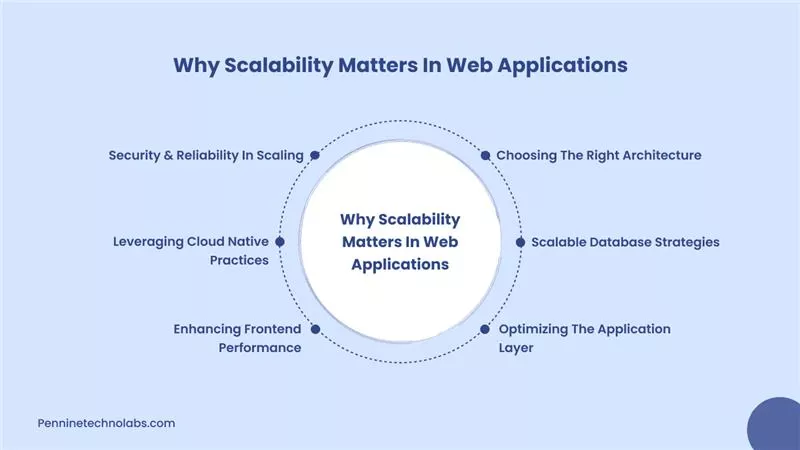
1. Choosing the Right Architecture
The architecture is the backbone of a web app system.
- Microservices Architecture: Applications are divided into independent services that can scale individually. It ensures flexibility and fault isolation.
- Serverless Architecture: With platforms like AWS Lambda or Azure, functions already allocate resources, reducing server management.
- Asynchronous Processing: Using Kafka or RabbitMQ allows asynchronous processing, which prevents bottlenecks during heavy loads.
Many web app development companies fail because of unplanned structures with no scaling options. These mistakes lead to costly work.
2. Scalable Database Strategies
The database often becomes the first performance bottleneck. You can avoid it by:
- Choosing the correct type of database: PostgreSQL for structured data, like a database, and NoSQL, like MongoDB or Cassandra, for volume workload.
- Sharding and replication: Sharding distributes data while replication ensures availability.
- Caching: Using Redis or Memcached reduces the query load and speeds up responses.
The smart database design distinguishes a small app from a product on a large scale that trusts millions.
3. Optimizing the Application Layer
The way the applications handle the users directly affects scalability.
- Load Balancing: Tools such as NGINX or HAProxy send the request to the server.
- API Gateway: Limit, Monitor, and Security in one place.
- Horizontal scaling: Instead of upgrading the single server, add more servers to balance the Workload.
Choosing a reliable web and application development company ensures that these practices are made from day one in your project.
4. Enhancing Frontend Performance
Scalability also depends on the front & as users do not notice the first performance.
- Code Splitting and Lazy Loading: Reduce the page load time by delivering the best
- CDNs: Distribute static files such as images and scripts in global servers.
- Optimized bundles: Minify the script, compress the images, and leverage frameworks like React or Angular for efficient rendering.
An experienced web app developer knows how to design well-performing frontends as the number increases.
5. Leveraging Cloud Native Practices
Cloud platforms make scalability accessible to businesses of all sizes.
- Containerization with Docker ensures the system connection.
- Kuberanets automates the orchestration, scaling, and recovery.
- Auto scaling provided by the cloud providers allows resources to adjust automatically.
6. Security and Reliability in Scaling
A scalable app should also be safe and reliable.
- Limiting rates prevents overload and DDoS attacks.
- Graceful degradation ensures that even under pressure, core features are available.
- Monitoring and logging, such as Prometheus and Grafana, provide real-time performance insights.
DevOps and Automation for Growth
- Automation is necessary in modern website development services in India.
- CI/CD pipelines accelerated the deployment cycles without compromising the quality.
- The infrastructure in the form of code makes scaling approximate and consistent.
- Automatic testing prevents performance decline as new features are introduced.
Avoiding Common Mistakes in Scaling
Competitive analysis shows that many companies struggle with scalability because they:
- Use monolithic designs
- Ignores database optimization
- Only focuses on Frontend performance
- Have no better plan to scale in the future.
Addressing these mistakes ensures that your application can handle not only today’s users but tomorrow’s growth.
Future Trends in Scalable Web Applications
Looking forward, the trends that shape the scalable web application include:
- AI-operated scaling, where the system predicts load and auto-adjusts before traffic spikes
- Edge computing for low Latency by processing data close to users
- Serverless-First App with Cloud Native Scaling
- These will redefine progress in what it means to score it efficiently.
Conclusion
Building a scalable web application is not a one-time job, but an ongoing strategy. From architecture options to database design, from frontend optimization to adoption, scalability should be planned at every stage of development.
Pennine Technolabs is more than a web and app development company. We are a reliable partner for businesses that require a scalable solution ready for the future. Whether you are launching a new product or upgrading your current system, our expertise in the development of the website and app ensures your business without increasing it.
FAQs to Build Web App
Why is scalability important in web application development?
Scalability ensures that a web application maintains speed, safety, and performance as traffic and data increase, which makes it necessary for long-term business success.
What are the best practices for creating scalable web apps?
Best practices include using microservices, database sharding, caching, load balancing, cloud integration, and DevOps automation.
How do cloud solutions help in scalable web application development?
Cloud platforms such as AWS, Azure, and Google Cloud offer auto-scaling, Kubernetes orchestration, and serverless computing, which makes the scalability more efficient.
Which industries benefit from Scalable Web apps the most?
Ecommerce, SaaS, healthcare, gaming, and finance industries greatly benefited because they experienced rapid user growth and high data demands.
How can Pennine Technolabs help with a Scalable Web application?
Pennine Technolabs is a reliable web and app development company that creates scalable, safe, and high-performance applications designed to grow with your business.
When should a developer begin thinking about scalability?
A developer should start thinking about scalability right from the planning and architecture stage. Early decisions on database structure, API design, hosting setup, and code structure directly impact how well the app grows later.
